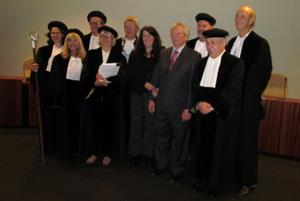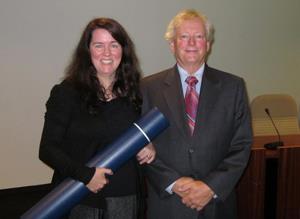C. McKenna Lang
DISSERTATION TITLE:
International Ombudsing: Navigating Discursive Channels
Ombudsing may be said to provide a rare, often fair-minded mechanism of protection for the individual with a grievance. Silent citizens often have much that needs redress through dialogue. It is not just an offer of participation, but a request for justice. There is often an absence of adequate channels for citizens to provide feedback to civil authority to obtain justice and the resulting silence – such as the silence produced by fear or retaliation – necessitates the construction of legitimate channels such as the ombuds office. Here they can help facilitate and legitimate the voice of the ordinary citizen. Whether through a complaint, a grievance or a conflict, ordinary citizens need a sanctioned opportunity to speak up without fear of retribution. The ombudsperson legitimates the ordinary person’s concern in a situation where it otherwise risks failing to rise to the level where it gets addressed by those who govern and administer. These ideas include the conceptualization of ombudsing as safely navigating the discursive field between the governed and the governing. Such navigation requires the intentional exploration of discursive spaces and the establishment of discursive channels where those often marginalized and left out of dominant institutional discourses may find voice and redress.
- Dissertation Abstract (224.58 KB)
- Dissertation


